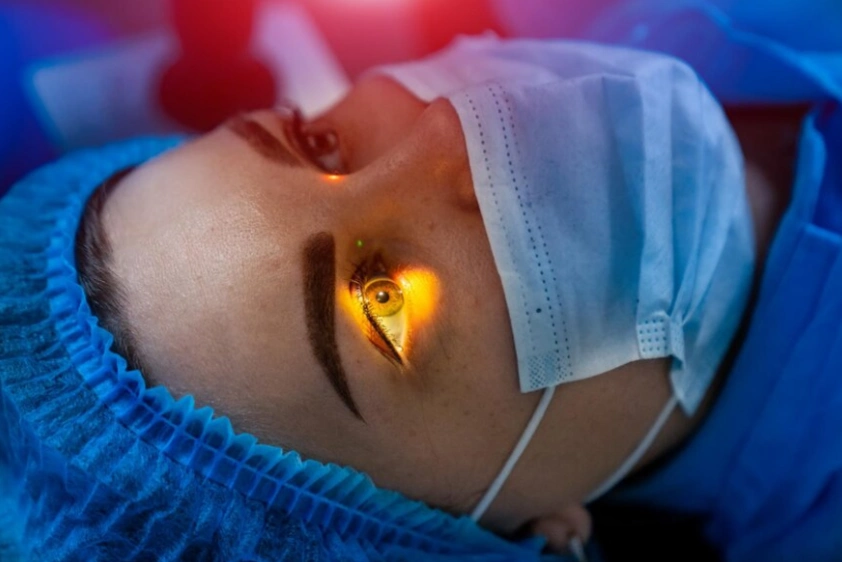HEALTH
HOW I DEALT WITH THE DIAGNOSIS OF MY BEST FRIEND

This post was originally written in 2012. It has been expanded and updated as necessary.**
SUPER SURVIVOR KNOW-IT-ALL AKA BEEN THERE DONE THAT, THIS WILL BE EASY!
I was diagnosed with stage 3 breast cancer in 2008. My best friend was diagnosed with breast cancer in 2012. As a survivor, I felt that I had an inside track to understanding what it meant to go through breast cancer treatment with someone. I mean, who is closer to you than you? No one, that’s for sure. I assumed that my experience with breast cancer and the treatment… along with all of the reading and research that I’ve done over the past few years prepared me and strengthened me and made me strong enough to withstand the tsunami of emotions that come along with the words “…has breast cancer”.
And yet, when I found out that one of my dearest friends was waiting for results from a biopsy during the Christmas holidays… I was rendered numb. I literally felt nothing. For me, that is wholly strange because I shed a tear and feel a twinge when someone tells me that someone they know and care about has the disease. Whether I know this person or not. I shed a tear every time. And as often as someone shares that message with me… it has added up to a lot of tears over time. But, I felt nothing when I heard that she was waiting for biopsy results to determine whether she had breast cancer. That worried me.
Everything went silent inside of me.
I didn’t know what to feel. I didn’t know what to say. Everything I had said to other people didn’t really apply because this was MY friend. Not a stranger that I was comforting. Not even myself that I had to give a pep talk to. This was a woman I had been friends with for over 15 years. Someone I never had to lie to, who never had to lie to me… and here I was… numb and dumbstruck. Until I was laying on her couch on New Year’s day… hungover and headachy and she told me that while I was napping off the champagne the doctor had called to confirm the results.
At that moment… I lost every possible cool point I may have ever had in my entire life. I didn’t rush to hug her, I didn’t have the right words of compassion and encouragement. No. I was that loser chick who screamed out… “BUT I DON’T WANT THIS FOR YOU!!” Which meant that she ended up consoling me for a moment.
*hangs head in shame*
In the one moment in our friendship where I could have repaid her for all the times she’s taken care of me, loved me, chastised me (because sometimes I need to be scolded)… I could only wail to God that it just wasn’t fair. In her face. Not even in private, like the bathroom, so she didn’t have to witness my breakdown.
Please don’t be a friend like me. Don’t be the friend who makes the person with the diagnosis have to stop her own grieving to console you. That’s selfish AF and it’s just not cool. This is her moment. Her time to BE consoled. Be a much better friend than I was. I beg you.
After the shock wore off… I got my head out of my ass and opened up to her
Over the weeks since her news, I have cried about her diagnosis and mine. And once I found my words… I have been honest with her in a way that I haven’t been honest with anyone since I was diagnosed. I have been honest about navigating the emotional landmines. I’ve been harsh. Not harsh towards her, but harshly honest about how I dealt with (and still deal with) this stupid disease. I haven’t spoken to her a lot. I didn’t want to become that sort of pesky, well-intentioned friend who searched for every little thing that might show how she was feeling in any particular moment. Because I know that her feelings would change from moment to moment and sometimes… sometimes it’s just too much to have someone repeatedly ask you… “how are you really feeling?” even when you know they mean well.
I don’t ever want her to feel like she needs to console me or comfort me during this time. That’s no longer her role. It is now mine.
This switching of places is unusual for us. I’m more of the cry-baby, tender-hearted one. The one who needs constant assurances. She is usually the strong one who always has a plan of action, a name, a number… a thought and a giggle. Something that moves me from inaction (which I often find myself paralyzed in) towards action. And now, I have to switch places and give her the words, the comfort, the truth that she needs. Doing that is not hard. But it isn’t something that I ever wanted to do.
The truth is basic: Nobody wants somebody they love to go through breast cancer. Especially if they’ve been through it themselves. This shit is hard. You want people you love to be spared this type of hardship. But you can’t protect them from it. You can only help them through it. Be there for them in the ways that they need.
My truth: As open as I seemed to be during my treatment process, I really wasn’t.
See, one of the things that I grew to accept as a comfort in this process was learning to tell some but not all of what I was feeling, what I knew and what I feared. I figured out early on that people do not want to know… really know… the tornado of emotions that you feel during this time. They want to know some of it, that’s true. I couldn’t get away with saying “I’m fine” for too long to my friends. So, I learned to parcel out how much of “I’m fine” to hand out. Too much and people believe that you’re lying. Too little and they get lost in their own personal nightmare of “oh my gawd, how does she handle it and what if that happens to me“… fair assessments on both ends.
Truth between survivors is raw.
But between survivors — and now my dear friend is also my pink ribbon sister — there is an unspoken code of brutal honesty that we share. We don’t lie to each other about how we feel or what we worry about because we don’t have to. We know what it all means and how it changes us. We know how it colors our world differently and makes everything topsy-turvy for a time. So, that raw and brutal honesty… we tend to save and share with each other.
Between survivors, there is a space that goes unsaid. That space says “life is far too short for the bullshit so give it to me real and don’t spare my feelings.” Nobody who has been diagnosed with breast cancer goes back to their naivety about how fleeting life is and how quickly things can change. It’s why we get that steel in our back and face the world head-on, ready to snatch and grab and go for any and everything we want. The illusion of time is gone. You seek the joy in all things small and minor that will keep you going until the next moment… because it’s what keeps you going until the next moment. No more waiting for the “next big thing” because it might not happy. Being happy now is all that is possible. Now. Not later. Not next year. Right now. Be happy and find joy in this actual moment.
And tell the raw, honest truth. Nobody has time for lies. They waste time because the truth will come out and whatever emotions you were trying to protect are still going to be exposed. So deal with the truth now and respect your time and the people in your life.
 |
| Yes, we are real people. Friends…. no scratch that.. sisters. |
How to move forward and be a supporter
At this point, I am letting her guide me into how much she needs me and where she wants me to be. She gave me that gift when I was going through my treatment and it was so very precious. But, just like she held my hand, literally and figuratively, throughout the two years that I fought this disease. I too am holding her hand and I won’t let go until she tells me to.
The steps to being a good friend and supporter are simple: listen and do.
Listen to her. Or just sit with her silently. But either way, give her space where she’s comfortable sharing with you what’s in her heart without that moment becoming about you. Don’t be so stoic that you don’t have any emotions. But find the balance between being a good listener and sharing her emotions.
Do what needs to be done. You have a home and a career or business and a family. You may not know all of her details and systems but you have a good idea of what it takes to run a household and to keep your career or business on track. Breast cancer treatment will wear you out – mentally, physically and financially. Don’t ask her what she needs, just do something that she needs. At your home, the dishes and laundry get washed, right? Well, at her home, those things will need to get done too – but she’s probably too exhausted to do them. Show up, and help out. Or gift her some maid service for a few months. Something like that will be super appreciated. Take her kids for an overnight visit or a trip to the movies. Visa gift cards or gift cards to a restaurant she likes that delivers.
Be easy on yourself… it’s hard for everyone to cope
I still struggle with guilt behind this disease. I think that’s life though. You can overthink everything if you try. And I seem to try daily and succeed at it. Your friend wants to be understood, given room to grieve, helped out without feeling guilty about needing help, and to still be treated like someone you love. If you master that, you win it all.
Also Read: 50 AFFIRMATIONS FOR BREAST CANCER SURVIVORS
HEALTH
Foenegriek Seeds Unlock Natural Healing and Strength

Foenegriek—known globally as fenugreek and traditionally as methi—is one of the oldest cultivated medicinal and culinary herbs in human history. For more than 6,000 years, this remarkable seed has traveled across cultures, continents, and civilizations, shaping cuisine, healing traditions, and even early trade markets. Today, foenegriek continues to rise in global popularity, not only as a spice but as a scientifically validated super-ingredient with impressive benefits for health, nutrition, cosmetics, and wellness.
In this extensive article, we explore how foenegriek grew from an ancient herbal remedy into a modern innovation ingredient, why its demand is skyrocketing worldwide, and what makes it stand out among natural medicinal seeds. From its rich history and nutritional profile to its therapeutic strengths, culinary diversity, and commercial applications, this 1,500-word deep dive uncovers everything you need to know about the powerful seed called foenegriek.
1. The Origins of Foenegriek: A Seed With a Timeless Legacy
Foenegriek (Trigonella foenum-graecum) is believed to have originated in the Mediterranean basin and parts of Southwest Asia. Archeological findings show that ancient Egyptians used foenegriek seeds in embalming mixtures and medicinal potions. The Greeks and Romans cultivated it as forage for animals—hence the name foenum graecum, meaning “Greek hay”—but soon recognized its value as a medicinal herb.
A Global Journey Across Civilizations
-
Egyptians prized it for easing childbirth and digestive issues.
-
Greeks recommended it for respiratory problems.
-
Romans used foenegriek for muscle recovery and appetite stimulation.
-
Indians integrated it deeply into Ayurveda, food, and household remedies.
-
Chinese medicine used it to treat weakness, swelling, and kidney imbalance.
-
Middle Eastern and North African cultures adopted it into spice blends, teas, and postpartum care.
Throughout history, foenegriek was both a culinary ingredient and a medicinal necessity, often serving as a bridge between food and healing. Its warm, slightly bitter, nut-like taste made it a popular spice, while its dense nutrient profile made it a universal remedy for strength, vitality, and wellness.
2. Nutritional Powerhouse: What Makes Foenegriek So Special?
Foenegriek’s benefits stem from its impressive nutritional and chemical composition. Each tiny seed contains a powerful concentration of bioactive compounds, making it a true superfood.
Key Nutrients in Foenegriek
-
Protein: Among the highest protein content of any seed.
-
Fiber: Rich in soluble fiber, especially galactomannans.
-
Minerals: Iron, magnesium, manganese, phosphorus, copper, and potassium.
-
Vitamins: B1, B2, B3, and limited vitamin C.
-
Healthy oils: Including linoleic and linolenic acids.
Bioactive Compounds
-
Diosgenin: A plant-based steroid precursor used in pharmaceuticals.
-
Trigonelline: Supports blood sugar management and brain health.
-
Saponins: Boost immunity and cholesterol metabolism.
-
Alkaloids and flavonoids: Provide antioxidant and anti-inflammatory effects.
This nutrient-rich profile is one reason foenegriek has gained global recognition among nutritionists, herbalists, and health-conscious consumers.
3. Major Health Benefits of Foenegriek
Foenegriek is no longer only a traditional remedy—modern clinical research consistently supports many of its benefits. This has helped foenegriek become one of the fastest-growing herbal supplements worldwide.
1. Blood Sugar Regulation
Foenegriek is perhaps most famous for its ability to stabilize blood glucose. Studies show that:
-
Soluble fiber slows carbohydrate digestion.
-
Trigonelline improves insulin sensitivity.
-
Saponins enhance glucose uptake in cells.
This makes foenegriek a supportive supplement for people managing diabetes, prediabetes, or metabolic syndrome.
2. Improves Digestion and Gut Health
Foenegriek has long been used to:
-
reduce acidity
-
ease indigestion
-
soothe constipation
-
support healthy gut flora
Its mild mucilaginous texture forms a protective layer in the stomach, helping calm irritation.
3. Enhances Women’s Health
In traditional households, foenegriek is a women’s wellness staple. Benefits include:
-
easing menstrual discomfort
-
supporting milk production in breastfeeding mothers
-
promoting hormonal balance
-
strengthening postpartum recovery
Many lactation teas and supplements around the world rely heavily on foenegriek seeds.
4. Boosts Testosterone and Men’s Wellness
Recent studies show that foenegriek extracts may:
-
increase testosterone levels naturally
-
enhance male vitality
-
improve muscle growth and sports performance
-
reduce fatigue
This has made foenegriek a popular ingredient in male fitness supplements.
5. Reduces Cholesterol Levels
Foenegriek’s fiber binds with cholesterol in the digestive tract, helping reduce LDL levels while supporting heart health.
6. Anti-inflammatory and Antioxidant Effects
Its flavonoids and alkaloids help reduce cellular inflammation, supporting long-term wellness and disease prevention.
7. Supports Hair and Skin Health
Foenegriek is widely used in beauty care for:
-
strengthening hair roots
-
reducing dandruff
-
promoting hair growth
-
improving skin elasticity
-
treating acne and inflammation
Foenegriek masks, oils, and serums have become increasingly popular in natural cosmetic markets.
4. Culinary Uses: A Flavorful, Versatile Ingredient
While many know foenegriek for its health benefits, its culinary importance is equally remarkable. The seeds, leaves, and powder all serve different purposes in global cuisine.
Foenegriek Seeds
-
Used in spice blends like curry powder, berbere, and garam masala.
-
Added to lentil dishes, pickles, and stews.
-
Roasted to bring out a nutty aroma.
Foenegriek Leaves (Fresh or Dried)
Known as methi, the leaves add a strong, earthy taste to:
-
breads (methi paratha)
-
curries
-
rice dishes
-
soups
-
vegetable mixes
Foenegriek Powder
Used as a thickener, flavor booster, and aromatic seasoning.
Foenegriek Tea
A popular herbal infusion for digestion, immunity, and relaxation.
Foenegriek Sprouts
Rich in enzymes, fiber, and vitamins, sprouts are added to salads and wellness bowls.
The combination of flavor and health benefits makes foenegriek one of the most multifunctional ingredients in global gastronomy.
5. Foenegriek in Modern Wellness and Industry
Today, foenegriek has expanded beyond the kitchen and traditional medicine. It is now a key ingredient in multiple industries:
1. Pharmaceutical Industry
Diosgenin extracted from foenegriek serves as a base compound in:
-
steroid synthesis
-
hormone treatments
-
anti-inflammatory medications
2. Nutraceuticals and Supplements
Foenegriek capsules, powders, and extracts are used for:
-
energy boosting
-
lactation support
-
hormonal balance
-
sports performance
-
weight management
3. Beauty and Cosmetics
Foenegriek is featured in:
-
hair oils
-
shampoos
-
serums
-
face masks
-
anti-aging creams
Its natural thickening properties also make it useful in organic skincare formulations.
4. Functional Foods
Health brands increasingly include foenegriek in:
-
energy bars
-
herbal teas
-
protein mixes
-
fortified foods
5. Agriculture and Animal Feed
Just like ancient times, foenegriek is still valued as a nutrient-rich fodder crop.
Through innovation and research, foenegriek has secured a strong position in wellness-focused industries.
6. Growing Foenegriek: A Sustainable, Climate-Resilient Crop
Foenegriek is incredibly resilient and easy to grow, making it a valuable crop in both traditional farming and modern agriculture.
Advantages for Farmers
-
Low water requirements
-
High drought resistance
-
Fast harvest cycle (3–4 months)
-
Soil-enriching nitrogen-fixing properties
-
Suitable for arid and semi-arid regions
Because of these qualities, foenegriek is being promoted as a sustainable crop option in regions facing climate change, soil depletion, and water scarcity.
7. Potential Side Effects and Precautions
While foenegriek is generally safe, certain considerations are important:
-
Large doses can cause digestive discomfort or bloating.
-
Pregnant women should avoid excessive consumption.
-
People on diabetes medication should monitor blood glucose closely.
-
Allergic reactions are rare but possible.
Moderation and guidance from a health professional are recommended, especially when using supplements.
8. The Future of Foenegriek: A Seed With Growing Global Importance
As global interest in natural remedies, herbal nutrition, and plant-based health solutions continues to rise, foenegriek is perfectly positioned to become a leading botanical ingredient.
Trends driving its future growth
-
Increased demand for natural supplements
-
Rising popularity of Ayurvedic and herbal wellness
-
Growth of clean beauty and organic skincare
-
Expansion of functional foods
-
Renewed focus on sustainable agriculture
Foenegriek is far more than a traditional spice—it is a bridge between ancient knowledge and modern wellness science
HEALTH
Health Threetrees Com VN: A Bridge Between Wellness and Everyday Life
HEALTH
Best LASIK Eye Surgery in Dubai: Clear Vision Starts Here

The Growing Popularity of LASIK in Dubai
Over the years, LASIK eye surgery has transformed the way people perceive vision correction. Once a procedure reserved for those with severe vision impairments, LASIK has now become a popular choice for individuals seeking to enhance their quality of life by achieving clearer vision. In Dubai, known for its advanced medical infrastructure, LASIK has gained significant traction among both residents and medical tourists. With cutting-edge technology and highly skilled surgeons, Laser eye surgery Dubai professionals offer a reliable and safe solution to eliminate the need for glasses or contact lenses.
As the demand for LASIK increases, clinics in Dubai are continuously upgrading their equipment and techniques, ensuring that patients benefit from the latest advancements in the field. The combination of world-class medical expertise and state-of-the-art facilities makes Dubai an ideal destination for anyone considering LASIK. Whether for cosmetic reasons or due to the inconveniences of traditional vision correction methods, people from around the world are turning to Dubai for clear vision.
Understanding LASIK Eye Surgery
LASIK (Laser-Assisted in Situ Keratomileusis) is a non-invasive eye surgery that reshapes the cornea to correct refractive errors, such as nearsightedness (myopia), farsightedness (hyperopia), and astigmatism. The procedure uses a specialized laser to remove tiny amounts of corneal tissue, which helps the eye focus light correctly on the retina, resulting in clearer vision. Unlike traditional corrective lenses, LASIK provides a more permanent solution, often eliminating or reducing the need for glasses or contact lenses.
The LASIK procedure involves creating a thin flap in the cornea, which is then lifted to allow the laser to reshape the underlying tissue. Afterward, the flap is repositioned, and the healing process begins. One of the primary advantages of LASIK is its quick recovery time, with many patients experiencing improved vision within hours after the procedure. However, successful outcomes depend on several factors, including the patient’s eye health, the surgeon’s expertise, and the technology used during the procedure.
Why Choose LASIK in Dubai?
Dubai is renowned for its exceptional healthcare services, with LASIK surgery being no exception. Many people from different parts of the world travel to Dubai for their LASIK procedure due to the availability of cutting-edge technology and skilled ophthalmologists. When choosing Laser eye surgery Dubai has become a popular destination, patients benefit from advanced diagnostic tools, sophisticated lasers, and world-class medical care.
Another reason for the rising popularity of Laser eye surgery dubai is the reputation of its medical professionals. The city boasts an impressive number of internationally trained and certified ophthalmologists who have expertise in performing LASIK procedures. With their knowledge, experience, and commitment to patient care, these specialists ensure that every LASIK procedure is as safe and effective as possible. Additionally, Dubai’s healthcare system is highly regulated, ensuring that medical standards are consistently maintained, which provides peace of mind to patients.
The LASIK Consultation: Your First Step to Clear Vision
Before undergoing LASIK surgery, it’s essential to have a thorough consultation with a qualified ophthalmologist. During this initial appointment, the surgeon will evaluate your eye health and determine if you are a good candidate for LASIK. This assessment typically includes a detailed eye examination to measure the shape and thickness of your cornea, your pupil size, and your refractive errors. It may also involve tests to check the health of your retina and other components of the eye.
The consultation is also an opportunity for patients to ask questions and discuss any concerns. The surgeon will explain the LASIK procedure in detail, including the risks, benefits, and expected outcomes. They will also inform you about the recovery process and post-operative care. By the end of the consultation, you should have a clear understanding of what to expect, which can help alleviate any anxiety about the surgery. Your surgeon will tailor the procedure to suit your specific needs, ensuring the best possible results for your vision.
LASIK Surgery Procedure: What to Expect
The LASIK procedure is quick and relatively painless, typically lasting around 10 to 15 minutes per eye. On the day of the surgery, you will be asked to lie down in a comfortable chair, and a local anesthetic in the form of eye drops will be applied to numb the eyes. A device is used to keep your eyelids open, and a small suction ring may be placed to stabilize the eye during the surgery.
The surgeon will then create a thin flap in the cornea using a microkeratome or a femtosecond laser. Once the flap is lifted, the laser is directed onto the cornea to reshape it according to the specific refractive error. The surgeon will ensure that the laser is precisely focused, and the procedure is closely monitored to guarantee optimal outcomes. After the cornea is reshaped, the flap is repositioned and begins to heal naturally.
In most cases, patients report little to no pain during the procedure, and any discomfort afterward can be managed with prescribed eye drops or over-the-counter medications. The procedure’s minimally invasive nature contributes to a fast recovery time, and most people can return to their normal activities within a day or two.
LASIK Aftercare: Ensuring a Smooth Recovery
One of the key advantages of Laser eye surgery Dubai specialists perform is the fast recovery time. Most patients experience only mild discomfort after the procedure, such as dryness or a gritty sensation in the eyes. However, it’s essential to follow the aftercare instructions carefully to ensure proper healing and achieve the best possible results.
Immediately after the surgery, patients are typically advised to rest for a few hours while their eyes heal. You may experience some blurry vision, sensitivity to light, or slight tearing during the first few days, but these symptoms should subside quickly. It’s important to avoid rubbing the eyes, as this can interfere with the healing process. Additionally, you should refrain from swimming, using hot tubs, or exposing your eyes to direct sunlight without protective sunglasses during the first few weeks.
Your surgeon will schedule follow-up appointments to monitor your recovery and ensure that your vision is improving as expected. During these visits, the surgeon will check for any complications, such as infection or dryness, and provide treatments if necessary. Most patients achieve stable vision within a few weeks, but full healing can take several months.
Risks and Considerations of LASIK Surgery
Like any surgical procedure, LASIK surgery carries some risks, although they are rare. Possible complications include dry eyes, glare or halos around lights, infection, or an incomplete flap during the surgery. In some cases, patients may not achieve the desired level of vision correction and may require a second procedure or the use of glasses or contact lenses.
It’s important to have realistic expectations about LASIK results. While most patients achieve 20/25 vision or better, some may experience minor vision fluctuations during the healing process. A thorough consultation with a trusted ophthalmologist is crucial to ensure you fully understand the potential risks and benefits of LASIK. With the guidance of a skilled surgeon, the likelihood of complications is minimal, and the benefits of clear vision often far outweigh the risks.
The Cost of LASIK Surgery in Dubai
One of the most frequently asked questions about LASIK surgery is the cost. The price of Laser eye surgery Dubai specialists offer varies depending on several factors, including the type of technology used, the surgeon’s experience, and the complexity of the procedure. On average, LASIK surgery in Dubai can range from AED 5,000 to AED 10,000 per eye.
While the cost may seem high, it’s important to consider the long-term savings. LASIK eliminates the need for glasses and contact lenses, which can be expensive over time. Many clinics in Dubai also offer financing options to make LASIK surgery more accessible to a wider range of patients. It’s essential to thoroughly research the costs and options before making a decision, ensuring that you choose a clinic that offers the best value for your investment in clear vision.
Conclusion
Laser eye surgery Dubai has become a top choice for those seeking permanent vision correction. With advanced technology, skilled surgeons, and excellent aftercare, LASIK provides a safe and effective solution to improve vision and enhance quality of life. Whether you’re tired of dealing with glasses or contact lenses, or you simply want to enjoy the freedom of clear, natural vision, LASIK offers a transformative experience.
The key to successful LASIK surgery lies in choosing a reputable clinic with experienced ophthalmologists who use state-of-the-art technology. With proper care, most patients achieve exceptional results and enjoy clear vision for years to come. If you’re considering LASIK, Dubai offers the ideal environment to make your vision correction journey a reality. Start your path to clear vision today and experience the life-changing benefits of LASIK surgery in Dubai.
-

 NEWS1 year ago
NEWS1 year agoSearchinventure: Redefining the Digital Experience
-

 HEALTH2 years ago
HEALTH2 years agoUnveiling the //vital-mag.net blog: Your Gateway to Health and Wellness
-

 NEWS2 years ago
NEWS2 years agoThe Alicia Case in Atlanta: A Deep Dive
-

 Pets2 years ago
Pets2 years agoUltimate Strength: Heavy-Duty Tactical Dog Collars for Large Breeds
-

 FASHION2 years ago
FASHION2 years agoHow to Style Floral Long-Sleeve Homecoming Dresses for a Glamorous Look
-

 BUSINESS1 year ago
BUSINESS1 year agoPedro Vaz Paulo: A Visionary Business Consultant Driving Success
-

 NEWS2 years ago
NEWS2 years ago2023-1954: A Journey Through the Decades
-

 TECHNOLOGY2 years ago
TECHNOLOGY2 years agoThe Evolution of Technology: From 1954 to 2023

